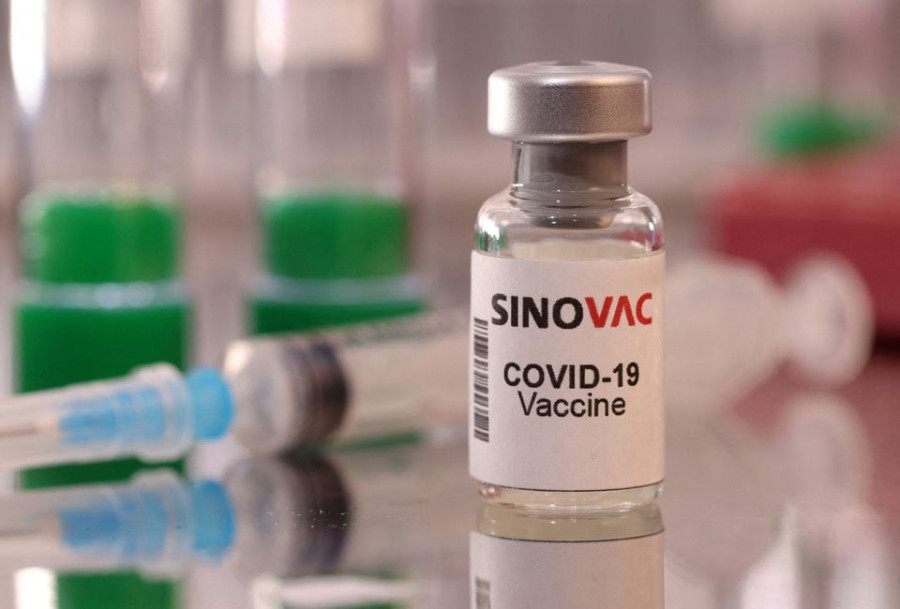Health
Health ministry seeks expert advice to dispose of 4 million doses of Covid-19 vaccine
The Sinovac-CoronaVac doses gifted by China some two years ago expired in December last year.
Post Report
The Ministry of Health and Population has started consultation with vaccine experts to dispose of four million doses of Sinovac-CoronaVac Covid-19 vaccine that expired in December last year, officials said.
Health authorities did not roll out the Sinovac-CoronaVac Covid-19 vaccine doses that China gifted some two years ago.
“We have started taking expert advice for disposing of four million doses of coronavirus vaccine,” said Dr Prakash Budhathoky, spokesperson for the Health Ministry. “We have already consulted with experts from the World Health Organisation, vaccine experts within the country and the National Immunisation Advisory Committee about the cost-effective and easy ways to dispose of the vaccine doses.”
Officials say that they have also sought advice from experts from vaccine manufacturing companies in China for the disposal of vaccine doses. They say that using chemicals and boiling the vaccine doses are among the measures suggested by the experts.
China supplied four million doses of Sinovac-CoronaVac under grant assistance. The government sent planes specifically to bring the vaccines from China. The doses had a shelf life of two years, so the health authorities decided to use another vaccine with a shorter life.
Later, the COVAX facility, the United Nations-backed international vaccine-sharing scheme, supplied sufficient doses of coronavirus vaccine, so the country did not need to use Sinovac-CoronaVac jabs.
“Meeting of the National Immunisation Advisory Committee did not agree to use Sinovac-CoronaVac jabs as a booster and we did not have people to administer first and second doses when the vaccine doses arrived,” said Budhathoky.
Nepal used coronavirus vaccines manufactured in China, India, Japan, several countries in Europe and the United States of America, including brands such as Astrazeneca, Vero Cell, Pfizer-BioNTech, and Moderna.
Meanwhile, the Health Ministry said that cases of coronavirus infection are being reported from various parts of the country. Officials ask the public to follow public health measures—wearing face masks, washing hands and avoiding crowds.
Nepal has confirmed the spread of the JN.1 sub-variant of the coronavirus in the country. Of the 16 swab samples on which whole-genome sequencing was carried out at the National Public Health Laboratory, the JN.1 sub-variant was detected in seven samples, which is around 44 per cent of the total.
The World Health Organisation classifies JN.1 as a separate ‘variant of interest’ given its rapid spread around the globe. The UN health body, however, said that based on available data, “the additional public health risk posed by JN.1 is currently evaluated as low”.
Several countries, including China, Indonesia, the Philippines, Malaysia and Singapore, have reported upticks in new coronavirus cases. The JN.1 strain, first detected in September in the United States, is a descendant of BA.2.86, a highly mutated variant of the Omicron strain of the coronavirus.
Health Ministry officials claimed that the agencies under the ministry were alerted about the risk and were directed to step up surveillance measures.
Over 12,000 people died and hundreds of thousands were infected in the first, second and third waves of the Covid pandemic in Nepal.
Public health measures have been lifted following the decline in the infection rate of the Omicron variant in 2021.




 14.12°C Kathmandu
14.12°C Kathmandu














